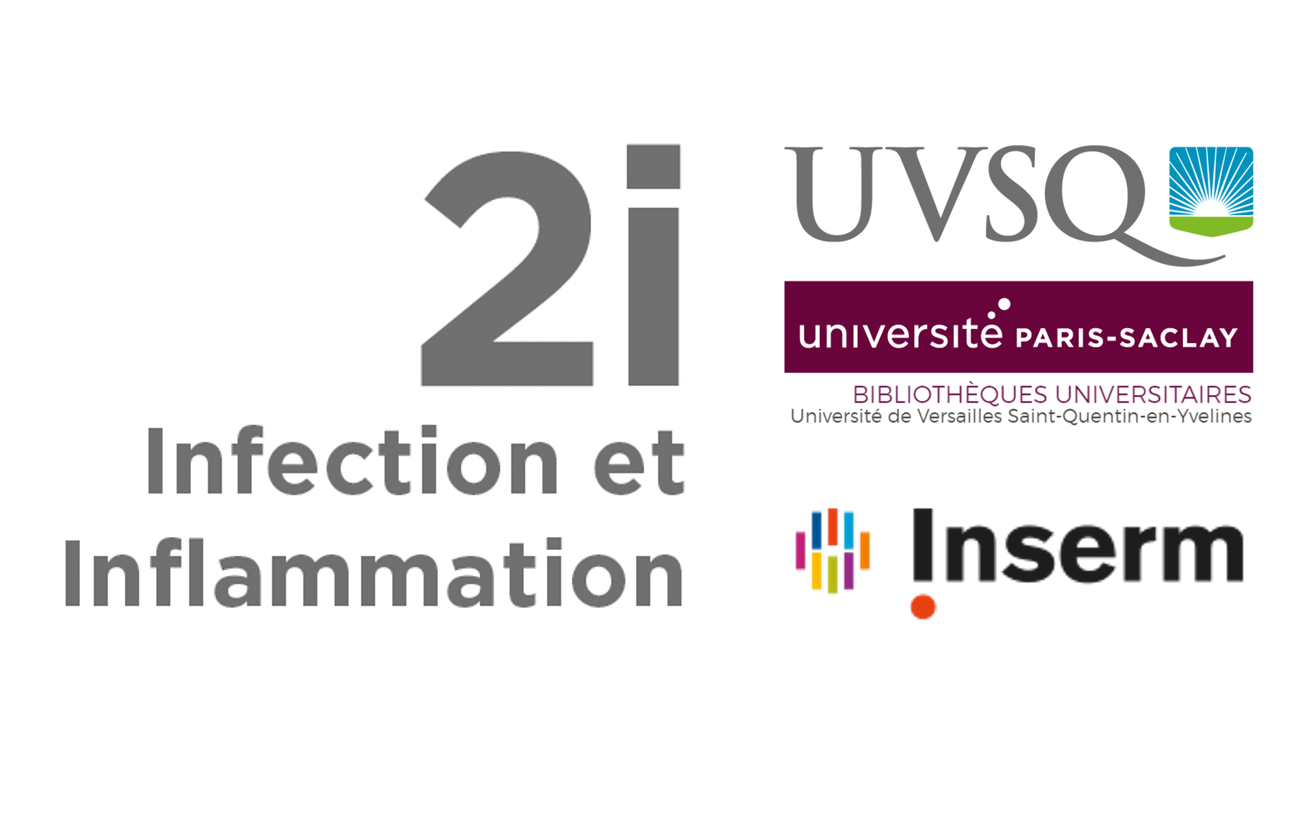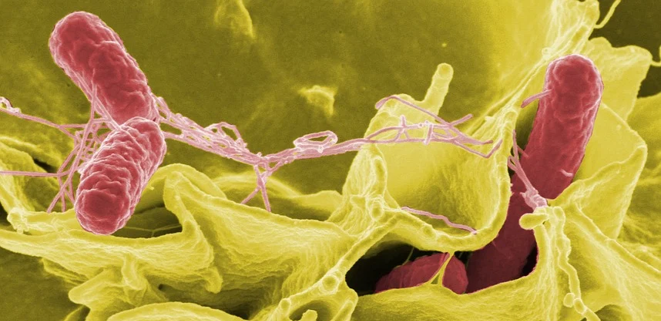Resilience after severe critical illness: a prospective, multicentre, observational study (RESIREA)
Alice Mathieu
(1)
,
Jean Reignier
(2, 3)
,
Amélie Le Gouge
(4, 5)
,
Gaetan Plantefeve
(6)
,
Jean-Paul Mira
(7, 8)
,
Laurent Argaud
(9)
,
Pierre Asfar
(10)
,
Julio Badie
(11)
,
Nicolae-Vlad Botoc
(12)
,
Hoang-Nam Bui
(13)
,
Delphine Chatellier
(14)
,
Louis Chauvelot
(15)
,
Christophe Cracco
(16)
,
Michael Darmon
(17, 8)
,
Agathe Delbove
(18)
,
Jérôme Devaquet
(19)
,
Louis-Marie Dumont
(20)
,
Olivier Gontier
(21)
,
Samuel Groyer
(22)
,
Yannick Hourmant
(2, 23)
,
Samir Jaber
(24, 25)
,
Fabien Lambiotte
(26)
,
Benjamin Madeux
(27)
,
Julien Maizel
(28, 29)
,
Olivier Martinet
(30)
,
Virginie Maxime
(31, 32)
,
Emmanuelle Mercier
(5)
,
Mai-Anh Nay
(33)
,
Saad Nseir
(34, 35)
,
Gael Piton
(36, 37)
,
Jean-Pierre Quenot
(38, 39, 40)
,
Anne Renault
(41)
,
Jean-Philippe Rigaud
(42)
,
Francis Schneider
(43)
,
Michel Sirodot
(44)
,
Bertrand Souweine
(45)
,
Fabienne Tamion
(46, 47)
,
Didier Thévenin
(48)
,
Nathalie Thieulot-Rolin
(49)
,
Francois Tinturier
(28)
,
Patrice Tirot
(50)
,
Isabelle Vinatier
(51)
,
Christophe Vinsonneau
(52)
,
Jean-Baptiste Lascarrou
(2, 3)
,
Alexandra Laurent
(1, 53)
1
PSY-DREPI -
Laboratoire de psychologie : dynamiques relationnelles et processus identitaires [Dijon]
2 CHU Nantes - Centre Hospitalier Universitaire de Nantes = Nantes University Hospital
3 MIP - Motricité, interactions, performance UR 4334 / Movement - Interactions - Performance
4 CIC - Centre d’Investigation Clinique [Tours] CIC 1415
5 CHRU Tours - Centre Hospitalier Régional Universitaire de Tours
6 CH Argenteuil - Centre hospitalier Argenteuil
7 Hôpital Cochin [AP-HP]
8 UPCité - Université Paris Cité
9 Hôpital Edouard Herriot [CHU - HCL]
10 CHU Angers - Centre Hospitalier Universitaire d'Angers
11 HNFC - Hôpital Nord Franche-Comté [Hôpital de Trévenans]
12 CH de Saint-Malo [Broussais]
13 CHU Bordeaux - Centre Hospitalier Universitaire de Bordeaux
14 CHU de Poitiers [La Milétrie] - Centre hospitalier universitaire de Poitiers = Poitiers University Hospital
15 Hôpital de la Croix-Rousse [CHU - HCL]
16 CH Angoulême - Centre Hospitalier d'Angoulême
17 AP-HP - Hopital Saint-Louis [AP-HP]
18 CHBA - Centre hospitalier Bretagne Atlantique (Morbihan)
19 Hôpital Foch [Suresnes]
20 Hôpital Louis Mourier - AP-HP [Colombes]
21 Hôpitaux de Chartres [Chartres]
22 CH Montauban - Centre hospitalier de Montauban
23 CIC Nantes - Centre d’Investigation Clinique de Nantes
24 PhyMedExp - Physiologie & médecine expérimentale du Cœur et des Muscles [U 1046]
25 Hôpital Saint Eloi [CHU Montpellier]
26 Centre hospitalier [Valenciennes, Nord]
27 Centre Hospitalier de Bigorre [Tarbes]
28 CHU Amiens-Picardie
29 MP3CV - Mécanismes physiopathologiques et conséquences des calcifications cardiovasculaires - UR UPJV 7517
30 CHU La Réunion - Centre Hospitalier Universitaire de La Réunion
31 2I - Infection et inflammation
32 Hôpital Raymond Poincaré [AP-HP]
33 CHRO - Centre Hospitalier Régional d'Orléans
34 CHRU Lille - Centre Hospitalier Régional Universitaire [CHU Lille]
35 UGSF - Unité de Glycobiologie Structurale et Fonctionnelle - UMR 8576
36 CHRU Besançon - Centre Hospitalier Régional Universitaire de Besançon
37 PCVP / CARDIO - Marqueurs pronostiques et facteurs de régulations des pathologies cardiaques et vasculaires - UFC ( UR 3920)
38 CHU Dijon - Centre Hospitalier Universitaire de Dijon - Hôpital François Mitterrand
39 LIPNESS - Lipides et transfert des lipides dans l'inflammation et le sepsis (CTM UMR 1231)
40 CIC-EC - Centre d'Investigation Clinique 1432 (Dijon) - Epidemiologie Clinique/Essais Cliniques
41 CHU - BREST - Hôpital de la Cavale Blanche - CHRU Brest
42 Centre hospitalier de Dieppe
43 HUS - Les Hôpitaux Universitaires de Strasbourg
44 Centre Hospitalier Annecy-Genevois [Saint-Julien-en-Genevois]
45 CHU Gabriel Montpied [Clermont-Ferrand]
46 Hôpital Charles Nicolle [Rouen]
47 EnVI - Endothélium, valvulopathies et insuffisance cardiaque
48 Centre Hospitalier de Lens
49 GHSIF - Groupe Hospitalier Sud Ile-de-France
50 Centre Hospitalier Le Mans (CH Le Mans)
51 CHD Vendée - Centre Hospitalier Départemental - Hôpital de La Roche-sur-Yon
52 CH Béthune - Centre Hospitalier de Béthune
53 CHU Dijon
2 CHU Nantes - Centre Hospitalier Universitaire de Nantes = Nantes University Hospital
3 MIP - Motricité, interactions, performance UR 4334 / Movement - Interactions - Performance
4 CIC - Centre d’Investigation Clinique [Tours] CIC 1415
5 CHRU Tours - Centre Hospitalier Régional Universitaire de Tours
6 CH Argenteuil - Centre hospitalier Argenteuil
7 Hôpital Cochin [AP-HP]
8 UPCité - Université Paris Cité
9 Hôpital Edouard Herriot [CHU - HCL]
10 CHU Angers - Centre Hospitalier Universitaire d'Angers
11 HNFC - Hôpital Nord Franche-Comté [Hôpital de Trévenans]
12 CH de Saint-Malo [Broussais]
13 CHU Bordeaux - Centre Hospitalier Universitaire de Bordeaux
14 CHU de Poitiers [La Milétrie] - Centre hospitalier universitaire de Poitiers = Poitiers University Hospital
15 Hôpital de la Croix-Rousse [CHU - HCL]
16 CH Angoulême - Centre Hospitalier d'Angoulême
17 AP-HP - Hopital Saint-Louis [AP-HP]
18 CHBA - Centre hospitalier Bretagne Atlantique (Morbihan)
19 Hôpital Foch [Suresnes]
20 Hôpital Louis Mourier - AP-HP [Colombes]
21 Hôpitaux de Chartres [Chartres]
22 CH Montauban - Centre hospitalier de Montauban
23 CIC Nantes - Centre d’Investigation Clinique de Nantes
24 PhyMedExp - Physiologie & médecine expérimentale du Cœur et des Muscles [U 1046]
25 Hôpital Saint Eloi [CHU Montpellier]
26 Centre hospitalier [Valenciennes, Nord]
27 Centre Hospitalier de Bigorre [Tarbes]
28 CHU Amiens-Picardie
29 MP3CV - Mécanismes physiopathologiques et conséquences des calcifications cardiovasculaires - UR UPJV 7517
30 CHU La Réunion - Centre Hospitalier Universitaire de La Réunion
31 2I - Infection et inflammation
32 Hôpital Raymond Poincaré [AP-HP]
33 CHRO - Centre Hospitalier Régional d'Orléans
34 CHRU Lille - Centre Hospitalier Régional Universitaire [CHU Lille]
35 UGSF - Unité de Glycobiologie Structurale et Fonctionnelle - UMR 8576
36 CHRU Besançon - Centre Hospitalier Régional Universitaire de Besançon
37 PCVP / CARDIO - Marqueurs pronostiques et facteurs de régulations des pathologies cardiaques et vasculaires - UFC ( UR 3920)
38 CHU Dijon - Centre Hospitalier Universitaire de Dijon - Hôpital François Mitterrand
39 LIPNESS - Lipides et transfert des lipides dans l'inflammation et le sepsis (CTM UMR 1231)
40 CIC-EC - Centre d'Investigation Clinique 1432 (Dijon) - Epidemiologie Clinique/Essais Cliniques
41 CHU - BREST - Hôpital de la Cavale Blanche - CHRU Brest
42 Centre hospitalier de Dieppe
43 HUS - Les Hôpitaux Universitaires de Strasbourg
44 Centre Hospitalier Annecy-Genevois [Saint-Julien-en-Genevois]
45 CHU Gabriel Montpied [Clermont-Ferrand]
46 Hôpital Charles Nicolle [Rouen]
47 EnVI - Endothélium, valvulopathies et insuffisance cardiaque
48 Centre Hospitalier de Lens
49 GHSIF - Groupe Hospitalier Sud Ile-de-France
50 Centre Hospitalier Le Mans (CH Le Mans)
51 CHD Vendée - Centre Hospitalier Départemental - Hôpital de La Roche-sur-Yon
52 CH Béthune - Centre Hospitalier de Béthune
53 CHU Dijon
Résumé
Abstract Background Critical-illness survivors may experience post-traumatic stress disorder (PTSD) and quality-of-life impairments. Resilience may protect against psychological trauma but has not been adequately studied after critical illness. We assessed resilience and its associations with PTSD and quality of life, and also identified factors associated with greater resilience. Methods This prospective, multicentre, study in patients recruited at 41 French ICUs was done in parallel with the NUTRIREA-3 trial in patients given mechanical ventilation and vasoactive amines for shock. Three months to one year after intensive-care-unit admission, survivors completed the Connor-Davidson Resilience Scale (CD-RISC-25), Impact of Event-Revised scale for PTSD symptoms (IES-R), SF-36 quality-of-life scale, Multidimensional Scale of Perceived Social Support (MSPSS), and Brief Illness Perception Questionnaire (B-IPQ). Results Of the 382 included patients, 203 (53.1%) had normal or high resilience (CD-RISC-25 ≥ 68). Of these resilient patients, 26 (12.8%) had moderate to severe PTSD symptoms (IES-R ≥ 24) vs. 45 (25.4%) patients with low resilience ( p = 0.002). Resilient patients had higher SF-36 scores. Factors independently associated with higher CD-RISC-25 scores were higher MSPSS score indicating stronger social support (OR, 1.027; 95%CI 1.008–1.047; p = 0.005) and lower B-IPQ scores indicating a more threatening perception of the illness (OR, 0.973; 95%CI 0.950–0.996; p = 0.02). Conclusions Resilient patients had a lower prevalence of PTSD symptoms and higher quality of life scores, compared to patients with low resilience. Higher scores for social support and illness perception were independently associated with greater resilience. Thus, our findings suggest that interventions to strengthen social support and improve illness perception may help to improve resilience. Such interventions should be evaluated in trials with PTSD mitigation and quality-of-life improvement as the target outcomes.
Fichier principal
 2024 Mathieu et al., Resilience after severe critical illness.pdf (775 Ko)
Télécharger le fichier
2024 Mathieu et al., Resilience after severe critical illness.pdf (775 Ko)
Télécharger le fichier
| Origine | Fichiers produits par l'(les) auteur(s) |
|---|

